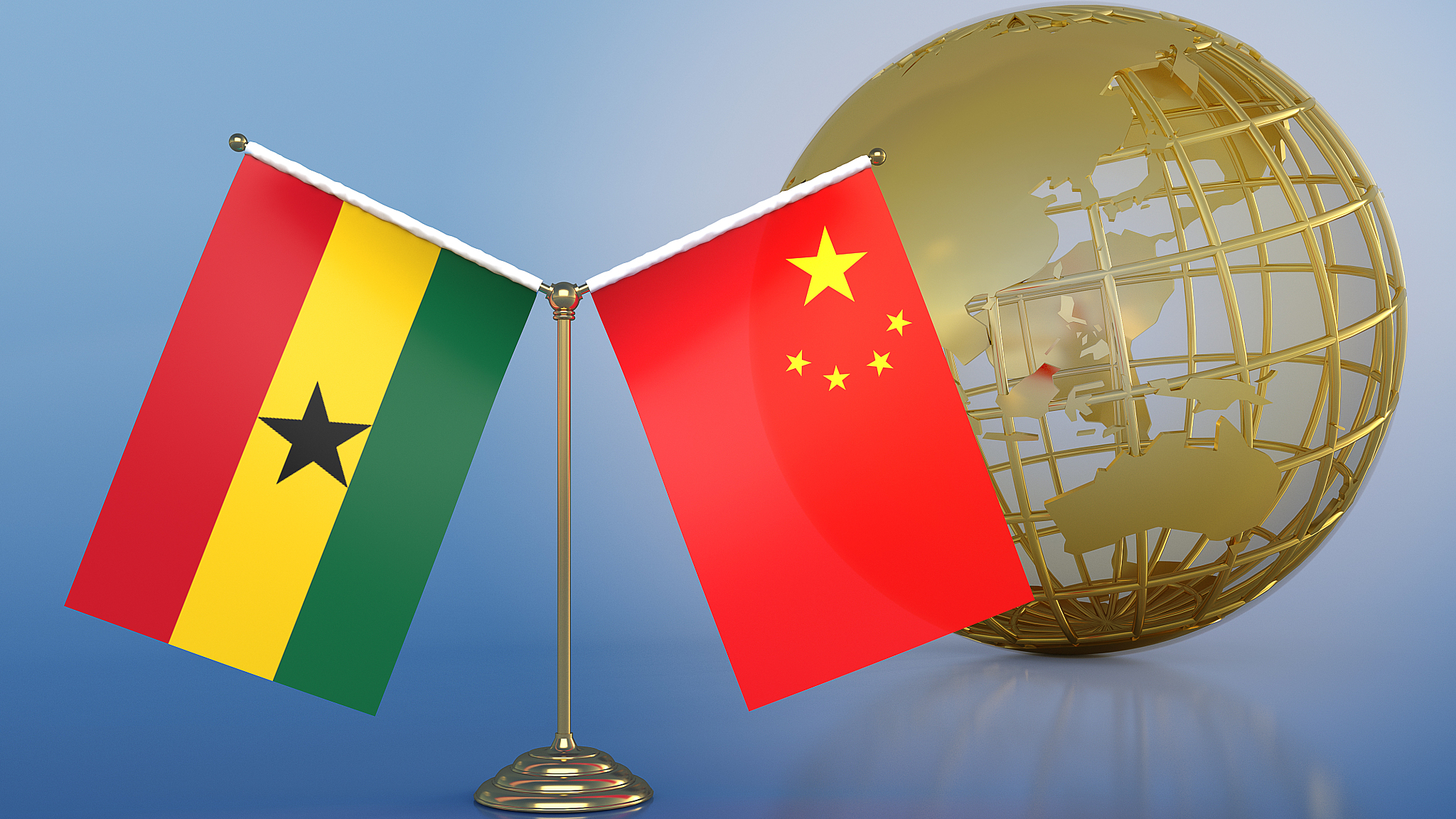
Editor's note: Alexander Ayertey Odonkor is an economic consultant, chartered financial analyst, and chartered economist with an in-depth understanding of the economic landscape of countries in Asia and Africa. The article reflects the author's opinions and not necessarily the views of CGTN.
Diplomatic relations between China and Ghana commenced in the early 1960s; a few years after Ghana gained independence from the UK in 1957. The two countries established a partnership shortly after Ghana became a republic in 1960. Ghana's first President Dr Kwame Nkrumah, together with Chairman Mao Zedong and Premier Zhou Enlai laid the foundation to the long-standing relationship between China and Ghana.
China's Premier Zhou Enlai and Vice-Premier Chen Yi visited Ghana, when they toured ten African countries from December 1963 to February 1964. This visit was a major milestone in the China-Ghana diplomatic relations, one that has shaped the relationship between the two countries.
The relationship between China and Ghana has a considerable influence on trade in both countries; providing mutual economic benefits. China is currently Ghana's biggest trading partner. Data from the Observatory of Economic Complexity (OEC) shows that in 2019 the trade volume between China and Ghana amounted to $7 billion.
To ensure that Ghana reaps maximum benefits from trading with China and even other trading partners, China is supporting policies to develop Ghana's manufacturing sector, in an effort to transform Ghana's export products (which are mainly raw materials) to finished products. Ghana is home to the headquarters of the African Continental Free Trade Area (AfCFTA), the world's largest free trade area, in terms of participating countries. This free trade area presents an opportunity for Ghana to earn additional revenue and create job opportunities from trading with other countries on the continent.
Unfortunately, this potential cannot be fully unlocked unless the country's infrastructure is developed appreciably to a capacity where it could stimulate adequate growth in the manufacturing industry. Producing high-quality finished products will give Ghana a competitive advantage to meet demand from the domestic and international market.
China has been instrumental in Ghana's commitment to convert raw materials into finished products. China is Ghana's major source of foreign direct investment (FDI) with the highest number of registered companies in the country. As a major economy with vast expertise in manufacturing and infrastructure development, China has been providing adequate resources to develop infrastructure in critical sectors in the Ghanaian economy such as energy, information and communication technology (ICT) and the transport sector with the objective to bolster growth in Ghana's manufacturing industry.

A customer uses a mobile payment kiosk in Accra, Ghana, April 22, 2021. /VCG
A customer uses a mobile payment kiosk in Accra, Ghana, April 22, 2021. /VCG
For example in 2011, the China Development Bank (CDB) and the government of Ghana signed an agreement for a $3 billion commercial rate loan to finance infrastructure development in the industrial zone, which included construction of railways, roads, and ports in the country.
In addition, a loan from China Exim Bank and the technical expertise from Sinohydro facilitated the construction of the Bui dam. Although the dam was planned in 1915, it took the financial and technical support of China to commence work on the energy project in 2009, which was completed in 2013. With a capacity to generate 404 megawatts of hydro-power, the Bui dam is essential in addressing Ghana's increasing energy demand.
Furthermore, Chinese companies are operating in several sections of Ghana's manufacturing sector, ranging from steel, pharmaceuticals, wig-making, plastic recycling, and the production of pellets and mattresses.
Even though Chinese companies provide jobs in Ghana, their influence in the domestic market is also evident, particularly in the plastic recycling business, which is new and dominated by Chinese companies. Ghana has a huge market for sachet water, which is the major source of drinking water for a large share of the country's population. This means that on a daily basis, millions of plastic water sachets (made of polyethylene) are dumped after use.
So the waste on the floor (plastic sachet) is collected and recycled into plastic bags. This is currently a viable business for many Ghanaians in the manufacturing sector as they are leveraging expertise from the Chinese recycling companies to collect and also recycle plastics into finished goods.
This aligns with Ghana's "One District One Factory" initiative, a policy that is revitalizing local economies through private sector-led industrialization. The China National Building Material Equipment Import and Export Corporation signed an agreement with the Association of Ghana Industries to commit $15 billion to transform Ghana's industrial sector. Through the "One District One Factory initiative," the government of Ghana seeks to build a resilient local economy that is industrialized and could provide sustainable jobs that will alleviate rural poverty, while serving domestic and international consumer markets. So far, significant progress has been made but there is still room for improvement.
Through the Sino-Ghana economic cooperation, Ghana is presented with an opportunity to draw vital lessons from China's precision poverty alleviation strategy in rural areas together with other innovative strategies that are supporting sustainable development in China. Ghana will be in a better position to unlock the full potential of the African Continental Free Trade Area (AfCFTA) by collaborating with China on projects such as the Belt and Road Initiative (BRI) and the Forum on China-Africa Cooperation (FOCAC) , which will provide the required infrastructure Ghana needs for sustainable development.
(If you want to contribute and have specific expertise, please contact us at opinions@cgtn.com.)

